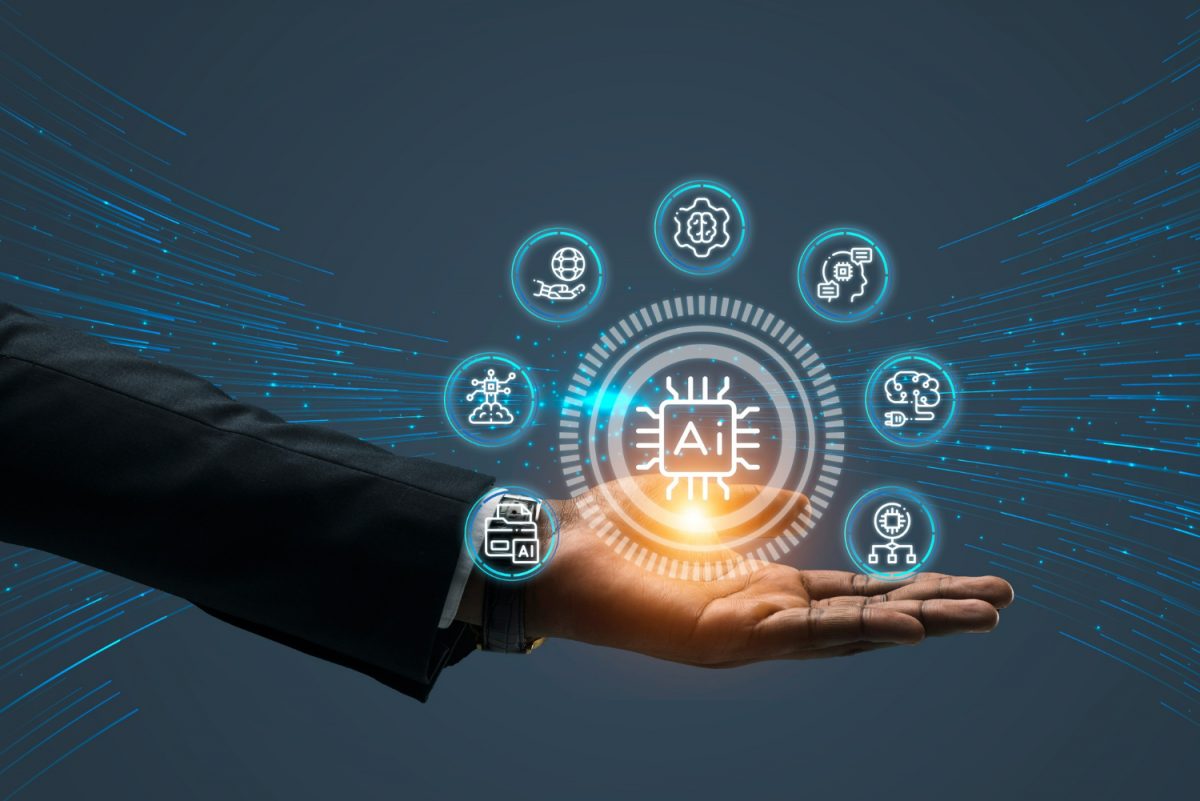Artificial Intelligence (AI) and the Internet of Things (IoT) are two transformative technologies that, when combined, have the potential to revolutionize the way businesses operate.
In this article, we’ll explore the various ways businesses can leverage AI in IoT to enhance efficiency, decision-making, and overall operational effectiveness.
Understanding AI in IoT
Before delving into the practical applications, it’s crucial to grasp the essence of AI in IoT. AI, with its ability to analyze data and make informed decisions, complements the extensive data collection capabilities of IoT. This synergy results in a powerful combination that goes beyond the sum of its parts.
Enhancing Data Processing with AI
One of the primary challenges in IoT is dealing with the sheer volume of data generated by connected devices. AI algorithms excel in processing and extracting meaningful insights from this data, providing businesses with a competitive advantage in terms of data-driven decision-making.
Optimizing Operations Through Predictive Maintenance
Predictive maintenance, a key aspect of IoT, is significantly enhanced by integrating AI. Through predictive algorithms, businesses can anticipate equipment failures, schedule maintenance proactively, and minimize downtime, ultimately optimizing their operations.
Smart Decision-Making with AI
Real-time decision-making is a game-changer for businesses. AI in IoT empowers organizations to make swift and accurate decisions based on the analysis of live data. From logistics to manufacturing, the impact on operational efficiency is profound.
Security in AI-Integrated IoT
Addressing security concerns is paramount in the world of IoT. The integration of AI adds an extra layer of defense, with machine learning algorithms identifying and mitigating potential threats in real time. This ensures the integrity and confidentiality of sensitive data.
Personalization and Customer Experience
The marriage of AI and IoT enables businesses to create personalized customer experiences. From tailored product recommendations to adaptive user interfaces, AI-driven personalization fosters customer loyalty and satisfaction.
Cost Efficiency and Resource Optimization
AI’s role in resource optimization cannot be overstated. In the context of IoT, businesses can achieve significant cost savings by optimizing resource utilization, whether in energy consumption, supply chain management, or production processes.
Overcoming Challenges in AI-Integrated IoT
Despite the immense potential, businesses face challenges in adopting AI in IoT, ranging from integration complexities to data privacy concerns. Strategies such as robust cybersecurity measures and comprehensive training programs can help overcome these hurdles.
Future Trends in AI and IoT Integration
Looking ahead, the integration of AI and IoT is poised to witness exciting developments. Edge computing, 5G technology, and advancements in AI algorithms are among the trends that will shape the future landscape. Businesses need to stay agile to harness these emerging opportunities.
Case Studies
Several forward-thinking businesses have already embraced AI in IoT with remarkable success. Companies in manufacturing, healthcare, and logistics have reported improved efficiency, reduced costs, and increased innovation as a result of this integration.
Regulatory Considerations
As with any technological advancement, regulatory compliance is a critical aspect. Businesses must navigate the legal landscape to ensure that their AI-integrated IoT systems adhere to relevant laws and regulations governing data privacy and security.
Ethical Implications of AI in IoT
The ethical dimension of AI in IoT cannot be overlooked. Businesses must prioritize ethical considerations in the development and deployment of AI systems to prevent unintended consequences and build trust with users and stakeholders.
The Role of AI in the Evolution of IoT
Looking beyond the present, the evolving role of AI in shaping IoT’s future is fascinating. From autonomous systems to enhanced human-machine collaboration, the possibilities are vast. Businesses that embrace and adapt to these changes will position themselves as leaders in their industries.
Conclusion
In conclusion, the integration of AI in IoT is a transformative journey for businesses. From optimizing operations to enhancing security and customer experiences, the benefits are diverse and impactful. As we navigate the evolving landscape of technology, businesses that strategically leverage AI in IoT will undoubtedly gain a competitive advantage.
FAQs
How does AI enhance predictive maintenance in IoT?
AI analyzes historical data to predict equipment failures, enabling proactive maintenance and minimizing downtime.
What are the future trends in AI and IoT integration?
Trends include advancements in edge computing, 5G technology, and AI algorithms, shaping the future landscape of integration.
How can businesses overcome challenges in AI-integrated IoT?
Strategies include robust cybersecurity measures, comprehensive training programs, and addressing data privacy concerns.
What role does AI play in the ethical considerations of IoT?
AI requires ethical considerations to prevent unintended consequences and build trust with users and stakeholders.
How can businesses stay ahead by embracing upcoming AI and IoT technologies?
Staying agile and adapting to emerging trends, such as autonomous systems and enhanced human-machine collaboration, ensures a competitive edge.



